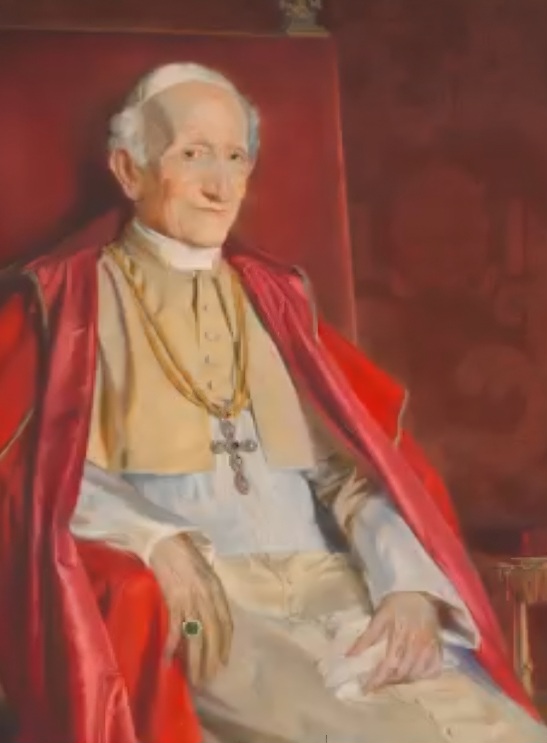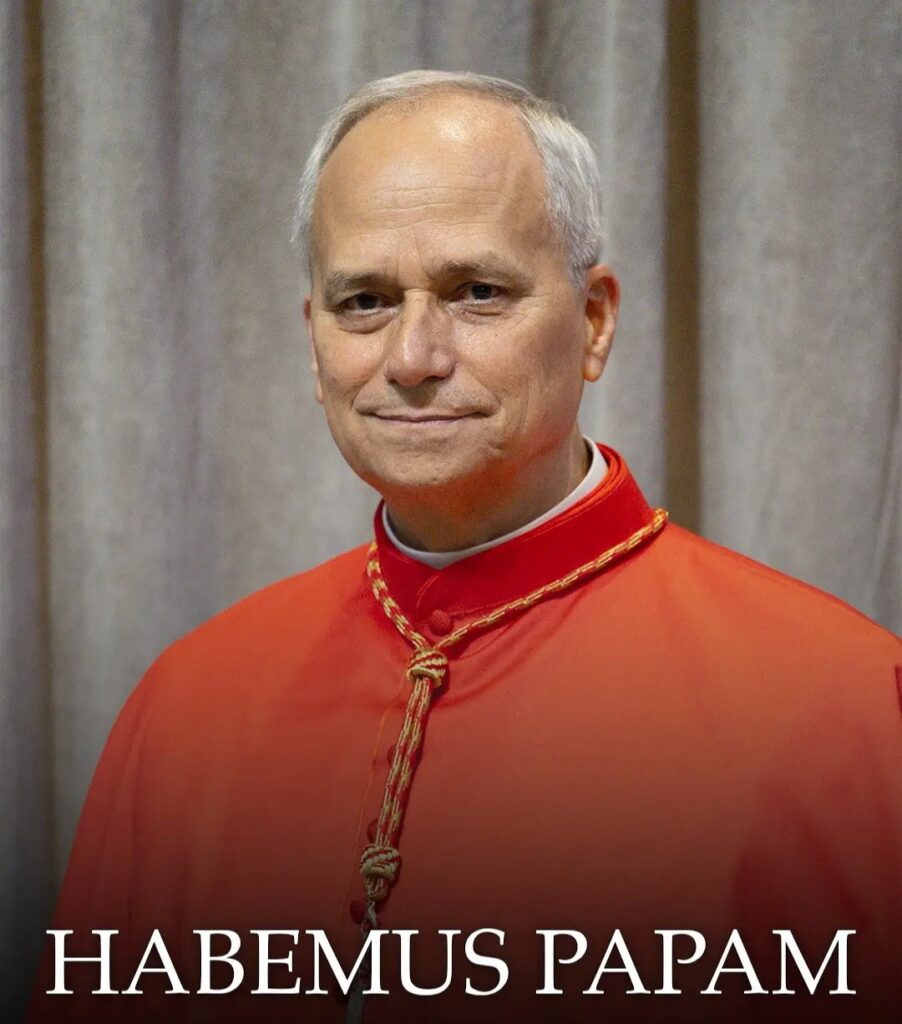Can He Unite a Changing Church and Address Africa’s Rising Voice?
The thick, white smoke billowed from the Sistine Chapel chimney at precisely 6:03 PM on May 8, 2025, a signal eagerly awaited by the throngs in St. Peter’s Square and billions watching worldwide. The ancient ritual had concluded. “Habemus Papam!”- We have a Pope! The announcement soon followed: Cardinal Robert Prevost, a 69-year-old Augustinian from Chicago, USA, would lead the world’s 1.3 billion Roman Catholics. As the 266th pontiff, he has chosen the name Leo XIV, immediately signaling a pontificate intended to be one of strength, tradition, and engagement with modern social challenges. His election is a watershed moment, the first time a citizen of the United States has been elevated to the Chair of Peter. Yet, amidst the historic celebrations, a profound sense of anticipation unfulfilled ripples across another continent. For many in Africa, home to the Church’s fastest-growing demographic and a burgeoning roster of influential cardinals, the hope that one of their own would finally ascend to the papacy remains, for now, a dream deferred.
A Name Echoing Strength and Social Justice
In choosing “Leo,” Pope Leo XIV deliberately invokes a powerful lineage. The name, Latin for “lion,” suggests courage and a commanding presence. More pointedly, it harks back to Leo XIII (1878-1903), a transformative figure who confronted the societal upheavals of the Industrial Revolution.
Leo XIII’s landmark encyclical, Rerum Novarum, became the bedrock of Catholic social teaching, championing workers’ rights, fair wages, and human dignity amidst stark economic inequality.

By adopting this name, Leo XIV signals an ambition to be a pope of renewal and resolute leadership, applying timeless principles to 21st-century dilemmas: the existential threat of climate change, the complexities of global migration, the search for peace in a fractured world, and the evolving role of the Church itself. His background as an Augustinian, an order known for its intellectual rigor and pastoral service, further hints at a papacy that will seek to blend deep theological reflection with practical action.
The American Pope: A New World Perspective?
The election of an American pope is a paradigm shift. Born and raised in Chicago, Illinois, Robert Prevost is no stranger to the complexities of a large, multicultural society. Crucially, however, much of his priestly and episcopal ministry was spent not in the U.S., but in Peru, where he served for decades, including as Bishop of Chiclayo. This extensive experience in Latin America provides him with a profound understanding of the Global South, its vibrant faith, and its pressing socio-economic issues. This unique blend of North and South American sensibilities could foster a pontificate that is both pragmatic and pastorally attuned, bridging cultural divides with a diplomatic yet firm approach.
The U.S. Catholic Church, itself a diverse and influential body, will undoubtedly see his election as a significant moment, potentially re-energizing its faithful and reshaping its relationship with the global Church.
However, the celebrations in some quarters are matched by a sense of wistful disappointment in others, particularly across Africa. The continent, a beacon of Catholic vitality and growth, now boasts a significant number of cardinals whose names were prominent in pre-conclave discussions, the papabili.
Africa’s Hope: A Continent Waits
“There was a genuine expectation, a fervent prayer, that this might be Africa’s moment,” says Father John Kyalo, a theologian in Nairobi, Kenya, echoing sentiments shared across many African nations. “We see our churches full, our seminaries flourishing. We have leaders of global stature.” Indeed, the College of Cardinals that elected Leo XIV included several highly respected African figures. Among them: Cardinal Peter Turkson of Ghana, a long-serving and prominent voice in the Curia, particularly on justice, peace, and development. Cardinal Fridolin Ambongo Besungu of the Democratic Republic of Congo, known for his courageous advocacy for peace and human rights in a conflict-ridden region. Cardinal Antoine Kambanda of Rwanda, a figure of reconciliation and healing in a nation marked by genocide. Cardinal Philippe Ouédraogo of Burkina Faso, a respected pastor leading a church facing extremist violence. Cardinal Robert Sarah of Guinea, a former Prefect of the Congregation for Divine Worship, known for his strong theological conservatism and influence. Cardinal Dieudonné Nzapalainga of the Central African Republic, one of the youngest cardinals, lauded for his interfaith peace-building efforts. For many African Catholics, the election of a pope from their continent would be more than symbolic. It would represent a validation of their dynamic faith, an acknowledgment of their growing importance in the universal Church, and an opportunity to bring a distinctly African perspective to global Catholic leadership – one deeply rooted in community, vibrant evangelization, and a lived understanding of the challenges and triumphs of developing nations. The feeling is not one of dissent, but of a hope that the Church’s highest office will soon reflect the demographic and spiritual energy flowing so strongly from the Global South.
Continuity and Contrast: Following Francis
Pope Leo XIV steps into the very large shoes left by Pope Francis, whose pontificate was marked by a revolutionary emphasis on mercy, outreach to the marginalized, and a “field hospital” vision of the Church. Many expect Leo XIV to continue Francis’s commitment to social justice, environmental stewardship (Laudato Si’), and dialogue with the peripheries, especially given his own missionary background in Peru. However, subtle but significant shifts are anticipated:

Shared Ground: A passion for the poor, a commitment to synodality (though perhaps with a different emphasis), and addressing global inequality are likely to be points of continuity. Both men share a non-Eurocentric worldview shaped by significant experience in the Americas.
Points of Departure: Leo XIV is widely perceived to be more theologically traditional than his predecessor. While Pope Francis initiated cautious openings towards LGBTQ+ individuals and pushed for greater pastoral flexibility, Leo XIV may adopt a more conservative interpretation of doctrine and discipline. His approach to Church governance might also differ, potentially emphasizing structural reform and administrative clarity over Francis’s more personal and spontaneous style.
The Path Ahead: A Church at a Crossroads
As Pope Leo XIV begins his Petrine ministry, the challenges are immense. He inherits a Church grappling with secularization in the West, internal polarization, the ongoing work of healing from the abuse crisis, and the need to be a compelling moral voice in an increasingly complex world. His American roots and Peruvian experience give him a unique vantage point. The world will watch to see how this “American Lion” will roar, whether it will be a roar of bold reform, a comforting affirmation of tradition, or a nuanced blend of both.
But for millions of Catholics, particularly in Africa, the quiet yet persistent question remains: When will the rich, diverse tapestry of the global Church see its many vibrant threads fully woven into the very leadership of Peter’s successor? The hope for an African Pope, though deferred, has not been extinguished. It remains a potent symbol of a Church striving to be truly universal in its leadership as it is in its flock. What will Pope Leo XIV’s legacy be? Will his pontificate mark a new convergence of North and South, or will it highlight the ever-present tension between tradition and the evolving face of global Catholicism?
